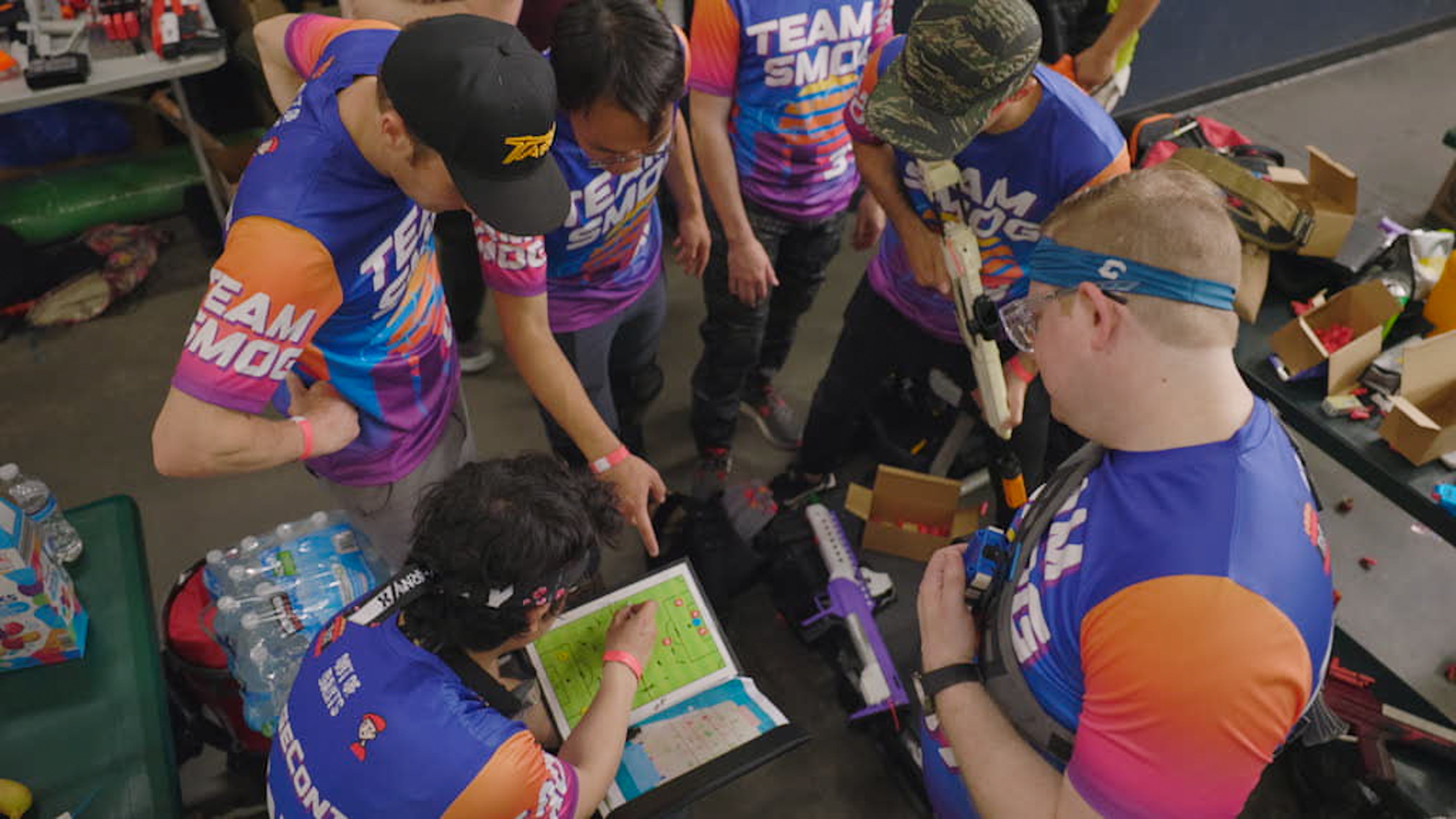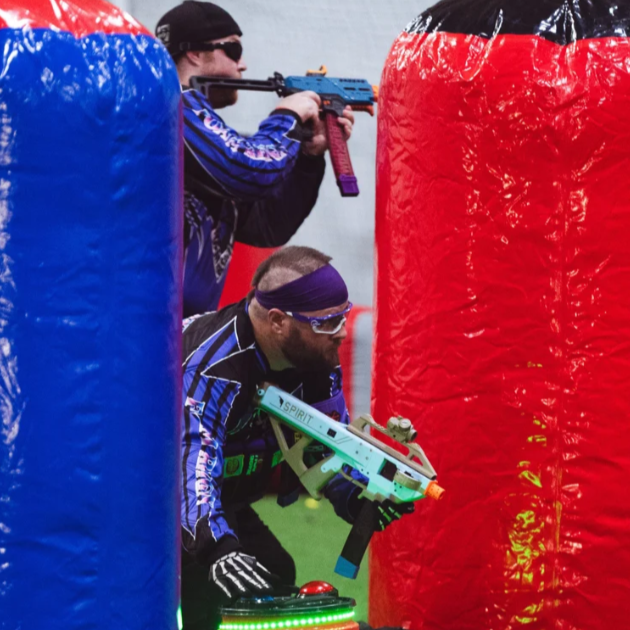The North American competitive nerf and blaster tag season of 2024 is upon us. As the weather warms, teams form in many corners of the map to face off against each other in the next event on the calendar. Many register, but only a select few will take home a medal.
Because the hobby’s competitive scene is still in its infancy compared to other sports, there is a wide variety of rulesets and formats floating around, and no one flavor of competition is dominant except maybe by its regional influences. The 2022 and 2023 seasons alone heralded a Cambrian Explosion of competitive events in our hobby—some new, some old, and some returning after a hiatus; smaller leagues and organizations have recently popped up to support competitive teams and recruit interested players. What better time than now to write an article about it?
What makes a competitive format?
Before discussing the different competitive offerings in the hobby, let’s look at what all competitions have in common…
Regulations
Competitions distinguish themselves from more casual foam-flinging games by regulations. More than just the rules of the game, regulations determine the size of the play area, the size and locations of cover, the size of each team, and more. Often, an organization or club acts as a governing body, establishing and enforcing these regulations and changing the rules and regulations when necessary.
Loadout and Equipment Limits
Competitive rules limit what players can and cannot use on the field. Whereas more casual games might allow or even encourage using melee weapons, shields, and throwables, competitions will prohibit them. Likewise, hand-tagging is not permitted.
Additionally, individual blaster performance, dart types used, and the number of darts per person can and often will be restricted. Usually (but not always), a split cap is introduced to balance one blaster type over another, ideally making any one reasonable loadout choice no more advantageous than another.
More than just Team Deathmatch
While all these game types involve tagging out a player with a blaster (they wouldn’t be blaster tag sports if they didn’t), merely tagging out every other opponent is not the only way to win; each format relies on an additional objective to keep players from turtling behind cover and running out the clock. Not only do these objectives make games more engaging and dynamic for hobbyists to play, but it also makes them much more fun to watch, and spectating is the best way for others to find out about this hobby and its competitive scene!
While the blaster tag sport is only in its beginning stages, four major competitive game types are currently being played in the United States, and a fifth is waiting to be publicly available. Most of these formats have at least one organization hosting an annual tournament, and all have public rules and regulations listed online. Click through the gallery below to find a summary of each major competitive ruleset and where to find more information:
More competitive blaster tag formats are out there, both large and small, and many deserve more attention. We may have missed a game type available in your region, but we hope our selection displays the wide variety of games available. We encourage you to look out for competitive leagues in your area.
Local Clubs + Leagues
As the birthplace of Hot Pot and home to the OOD-sponsored Nebula and Red Tide teams, the San Diego Nerf Club is the most prominent league on the West Coast. The SDNC has hosted its fair share of tournaments and scrimmage games to practice for other competitions. Likewise, both Nebula and Red Tide have been fortunate enough to place on the podium multiple times in a variety of rulesets. Two Nebula Teams, Nebula and Nebula International, will be competing in the 2024 Maryland Foam Tournament on April 19th.
On the East Coast, while TnT Events is one of the most prominent groups playing Hot Pot, they are no stranger to other rulesets. Their monthly events provide opportunities to play in nearly every competitive format. Similarly, Sunshine Dart League is an organization in Florida run by members of the Orca Company and Beef Squad teams. They aim to play scrimmage rounds of each game type before a major tournament.
Competitive at Home
You don’t have to have a league or major event in your area! Even if the equipment for a game type is unavailable, the rules for all five formats are freely available. Indeed, many of these games can be adapted to use a $20 chess clock, an app on your phone, or a bright T-shirt instead of the equipment used at tournaments. With as few as five more of your friends, you, too, can play competitive blaster tag!


